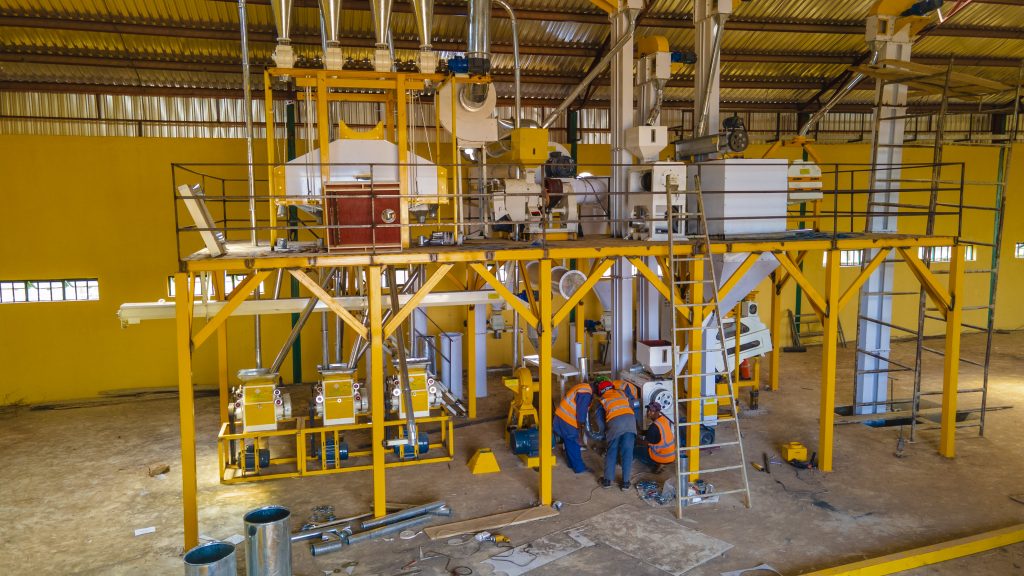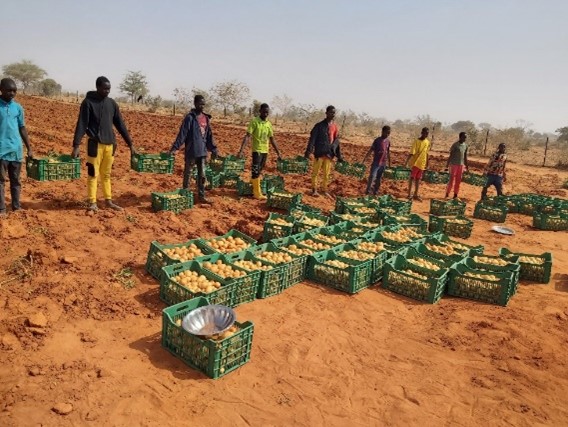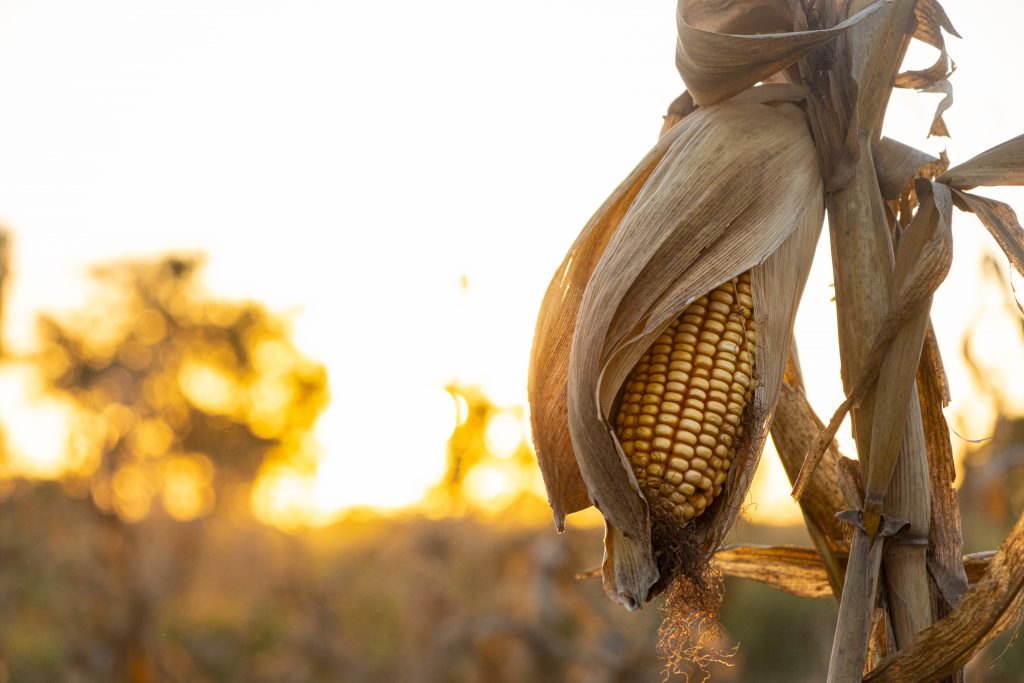Floods. Erratic Rainfall. A global pandemic. A war in Europe.
West Africa has faced increasing food insecurity for the last decade, and the devastating health, climate, and political events of the 2020s have only exacerbated this condition. Nearly 24 million people in West Africa needed food assistance in 2021, and the number of people expected to face extreme hunger by the end of 2022 was well over 30 million. The region has a high import dependency on staple foods, including rice and wheat, and food costs have soared – i.e., increasing 30% in Burkina Faso in July 2022, and 21% in Senegal in November 2022 – amid global inflation and increasing fuel and fertilizer costs.
Millions of West Africans face the real threat of hunger and malnutrition, and without sustainable interventions in food production, agri-processing, and food availability on the local market, more families will be forced to skip meals or rely on diets with minimal nutritional value. These interventions cannot be engineered by governments alone.
At the USAID West Africa Trade & Investment Hub (Trade Hub), this need for extra-governmental, private-sector investment in the agricultural sector is one of our top priorities. The Trade Hub partners with private sector companies working in agricultural value chains through co-investment grants and technical assistance to enable these companies to implement projects that drastically improve their production and processing capacity, while increasing food quality and availability in the region.
Boosting Maize and Soybean Supply in Northern Nigeria
The World Food Programme’s 2021 report stated that 7 out of 10 Nigerians did not have enough food to eat, and with a rapidly growing population, high levels of insecurity, and climate events affecting agricultural production, West Africa’s largest economy needed an injection of investment to support its agricultural sector.

In 2021, the USAID-funded West Africa Trade & Investment Hub (Trade Hub) awarded Nalmaco Nigeria Ltd., a food and processing company in Zaria, Kaduna State, a co-investment grant of $823,718.68 for its Grains Aggregation and Processing Project. The project aims to reduce Nalmaco’s cost of operation, and engage and train 2000 farmers to produce quality grain to meet the growing demand. The project includes the construction of a 15,000 MT warehouse facility to mop harvested and/or processed and properly sorted grain by August 2023.
Nalmaco Nigeria has to date onboarded 1600 maize and soybean farmers— approximately 80 percent of the initial target– and completed over 85% of construction and equipment installation for the processing plant. The company has also invested in six units of 45MT/month solar dryers for maize and soybeans to enhance the drying process, reducing post-harvest losses by 30-35 percent and increasing farmers’ income by at least 40 percent.
Nalmaco Nigeria’s Trade Hub project will significantly impact the livelihoods of farmers in Kaduna State and improve their capacity to produce two of the region’s key staples: maize and soybeans.
Strengthening Potato Production in Niger
Desertification in the Sahel, conflict, and failed rainy seasons have plunged millions of households in Niger into food insecurity. Working with the private sector, the USAID-funded West Africa Trade & Investment Hub seeks to support efforts to mitigate the country’s food deficit.
The Trade Hub awarded a $463,158 co-investment grant to Confédération Coopérative Paysanne Horticole Niger (CCPHN), an agricultural cooperative established to enhance Niger’s production of horticultural products, particularly potatoes, to strengthen its potato production, storage, and sales capabilities, and help offset the negative effects of the COVID-19 pandemic. The project has numerous objectives, including reinforcing CCPHN’s storage capacity by building a warehouse holding up to 1,000 tons of potatoes, building a 140 KW solar photovoltaic power capability to reduce energy storage costs by 70 percent, and selling 1,700 tons of local potatoes each year, including 300 tons from CCPHN’s production and 1,400 tons purchased from 500 producers. The project will create and sustain 120 fixed-term employment opportunities, including 50 existing jobs and 70 new jobs, as well as 500 temporary jobs in the potato value chain by 2023.

CCPHN has seen much success in its Trade Hub partnership. The company has to date purchased farm equipment such as tractors, fertilizer seed drills, trailers, and compactors used for ploughing, planting, and harvesting; bought 1,400MT of potatoes from producers and sold for $1.4 million; trained 532 potato producers on pre-and post-harvest techniques; created 70 new jobs, dominated by youth; and created 29 points of sale (25 mobile carts and 4 physically established points of sale in Niamey).
Restoring Resilience in Maize Supply in Burkina Faso
Together with millet and sorghum, maize forms a substantial part of the diet of Burkina Faso, and volatility in local supply negatively impacts millions of households. To create a more stable supply of the staple, the Trade Hub is partnering with local businesses to build resilience in the supply chain.
AgroServ Industrie is a market leader for processed maize products in Burkina Faso, employing 113 people and exporting 500 tons of processed maize products a year. The company currently has three maize products on the market: corn flour and meal, corn grits intended for breweries, and corn bran used in feed for livestock.

co-investment grant, the company will expand its operations and its exports. Photo credit: The Trade Hub
With a Trade Hub co-investment grant of $1.5 million, AgroServ will be able to scale its operations, attract further investment and strengthen the capacity of its maize farmers. To date, the partnership has already been successful in garnering private investment from investors I&P, Oikocredit, and Agriffin. These investments are being used to modernize and complete the Agroserv processing plant currently under construction in Bobo-Dioulasso. By 2024, the partnership will create 450 new jobs and integrate 11, 250 maize farmers and at least 3,000 soybean and sesame farmers into Agroserv’s supply chain, increasing sales from $6.32 million in 2020 to $24.47 million by 2024.
AgroServ Industrie has trained 1,411 maize producers on pre-and-post-harvest techniques; trained 10 agribusiness advisors on the control of aflatoxin contamination; and secured $6 million for construction of a new maize processing plant.
Over the course of these partnerships with the Trade Hub, these private sector companies will not only be able to significantly impact food availability and nutrition in their countries but will also leverage their Trade Hub co-investment to raise additional private sector investment to sustain their activities and expand region agricultural production.
[1] https://www.worldbank.org/en/results/2022/05/15/afw-responding-to-the-food-crisis-in-the-sahel

